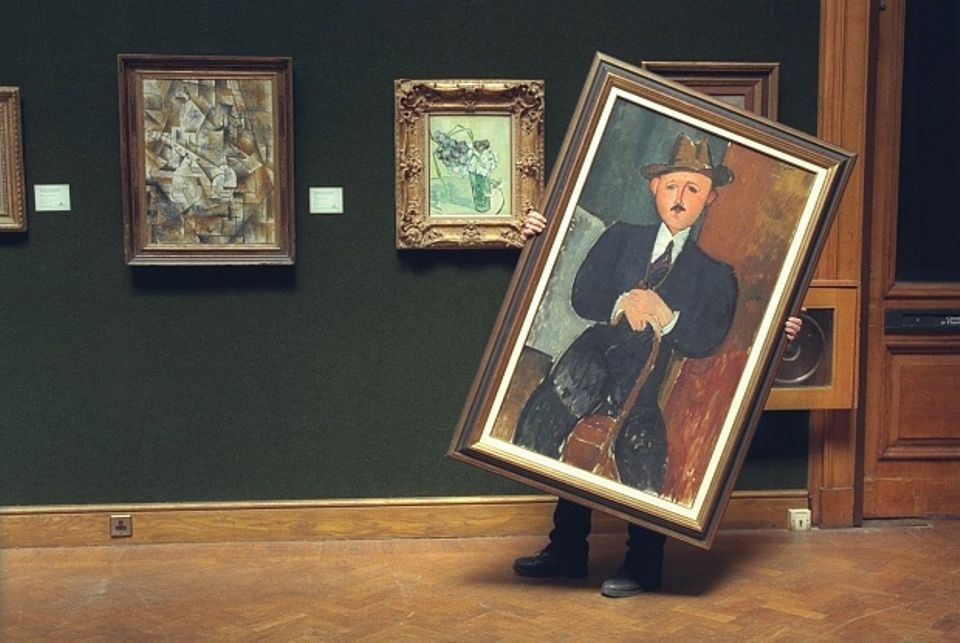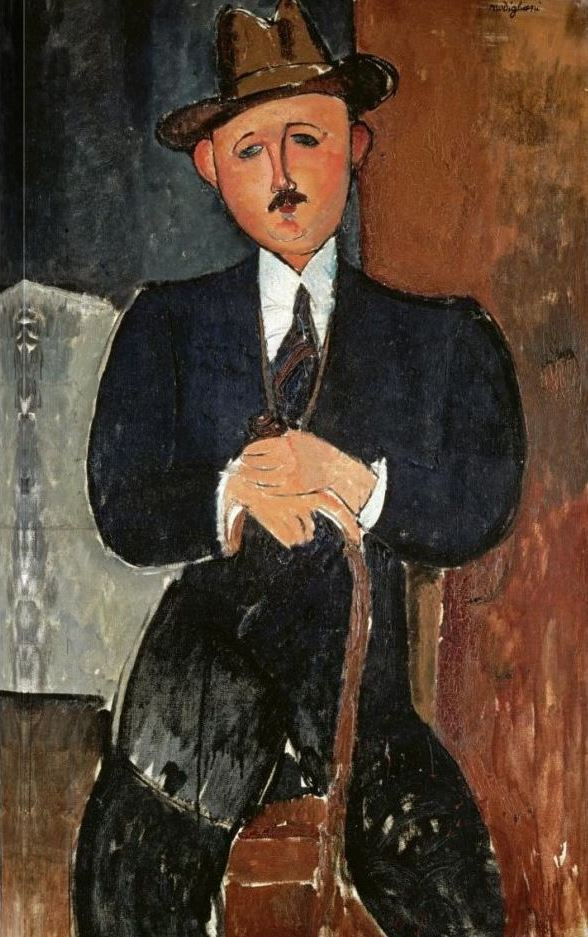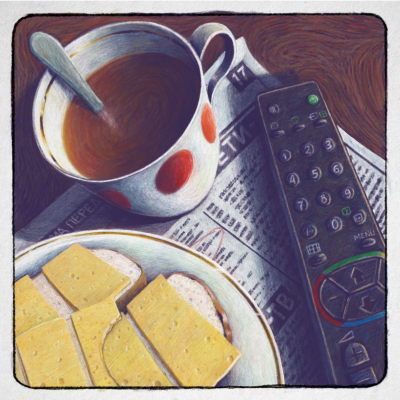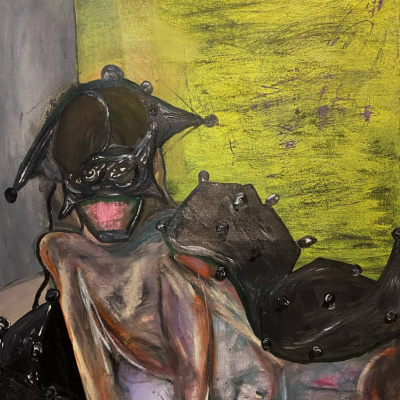On Wednesday, 18 April, a New York State judge denied the motion of the powerful art-dealing Nahmad family to dismiss a long-running battle over the ownership of Amedeo Modigliani’s "Seated Man with a Cane" (1918). Judge Eileen Bransten ruled that the case is alive and would be considered under New York law instead of French law as was argued by the Nahmads. It was clear from her 40-page decision that "New York is not and shall not be a safe harbour for art pillaged during Nazi genocide."

A new trick in a long legal battle made by the defendants, the powerful art-dealing Nahmad family, was overruled by New York State court. Last Wednesday, the judge made it clear that New York law has a greater interest in protecting its art market from trafficking in stolen art than French law which could have been applied but not in this specific case.
The lawsuit has rumbled on for years as the Nahmad family defended themselves by making new ploys. The story goes back to the times of World War II. Amedeo Modigliani’s "Seated Man with a Cane" was allegedly confiscated in 1944 in Nazi-occupied Paris from the Jewish collector and art dealer Oscar Stettiner and never recovered.
The portrait of a man with a mustache in a hat, sitting on a chair and putting his both hands on a cane in front of him was purchased in 1996 for $3.2m at Christie’s and then its whereabouts were unknown for decades until it surfaced at an auction in 2008 under mysterious ownership. In 2008, the painting failed to sell when offered at Sotheby’s in New York, apparently because of questions about its provenance and a concern that it might have been looted. Then the canvas disappeared once again.
The lawsuit has rumbled on for years as the Nahmad family defended themselves by making new ploys. The story goes back to the times of World War II. Amedeo Modigliani’s "Seated Man with a Cane" was allegedly confiscated in 1944 in Nazi-occupied Paris from the Jewish collector and art dealer Oscar Stettiner and never recovered.
The portrait of a man with a mustache in a hat, sitting on a chair and putting his both hands on a cane in front of him was purchased in 1996 for $3.2m at Christie’s and then its whereabouts were unknown for decades until it surfaced at an auction in 2008 under mysterious ownership. In 2008, the painting failed to sell when offered at Sotheby’s in New York, apparently because of questions about its provenance and a concern that it might have been looted. Then the canvas disappeared once again.
Seated man with a cane
1918, 126×75 cm
In 2011, Stettiner’s grandson, Phillipe Maestracci eventually tracked down the work and sued Helly Nahmad and his gallery, where the painting had been exhibited, to recover the work worth $25m. But the Nahmads said the painting was not actually owned by their family but by the Panamanian corporation International Art Center (IAC). And the suit was withdrawn. However, the case was renewed in 2014, and gained worldwide attention in 2016 when the Panama Papers, leaked from the law firm Mossack Fonseca, revealed that IAC was a shell company wholly owned by David Nahmad.
At the last hearing of the case, the New York State judge cited a New York Times article in which David Nahmad said: "The International Art Center is me… It’s David Nahmad." Judge Eileen Bransten ruled that he and corporation are alter egos, which means that David is responsible for IAC’s actions and liabilities.
Under New York law, if the plaintiffs prove the Modigliani painting was taken from Stettiner by the Nazis, IAC could not legally own it. That means that the Nahmads should recover the portrait. This is exactly what the Nahmad family yearned to avoid and therefore argued that French law should by applied in the law suit. The point is that they hoped that the plaintiffs would not be able to recover the painting under French law, considering it had been purchased in good faith. To support their argument, they insisted that Maestracci is French and the Modigliani was allegedly looted in Paris.
At the last hearing of the case, the New York State judge cited a New York Times article in which David Nahmad said: "The International Art Center is me… It’s David Nahmad." Judge Eileen Bransten ruled that he and corporation are alter egos, which means that David is responsible for IAC’s actions and liabilities.
Under New York law, if the plaintiffs prove the Modigliani painting was taken from Stettiner by the Nazis, IAC could not legally own it. That means that the Nahmads should recover the portrait. This is exactly what the Nahmad family yearned to avoid and therefore argued that French law should by applied in the law suit. The point is that they hoped that the plaintiffs would not be able to recover the painting under French law, considering it had been purchased in good faith. To support their argument, they insisted that Maestracci is French and the Modigliani was allegedly looted in Paris.

The art dealer David Nahmad with the "Seated Man with a Cane" by Modigliani. Photo: Sipa via AP Images
George Gowen, the administrator of Stettiwer’s estate, and Phillip Landrigan, the lawyer for Maestracci, called the decision a "complete victory" for their clients. However, Richard Golub, the attorney of the defendants—David Nahmad and IAC, along with Helly Nahmad and his New York gallery—says that the Nahmads will appeal. Mr. Golub says that if the plaintiffs "had proof the painting belonged to Oscar, we would have tried to resolve this earlier." Yet, he claims that the "Seated Man with a Cane" is not the same painting Stettiner owned, "so it’s much ado about nothing… They can win a motion to dismiss, but at trial it will be completely different".
Just to remind you, another art scandal featuring Modigliani paintings has aroused half a year ago, when two thirds of Modigliani paintings exhibited at Genoa’s Palazzo Ducale in 2017 have been denounced as fakes.
Written on materials of theartnewspaper.com, theguardian.com, thetelegraph.co.uk. Title photo: Amedeo Modigliani, Seated Man with a Cane (1918). Credit: Brain Smith.



















